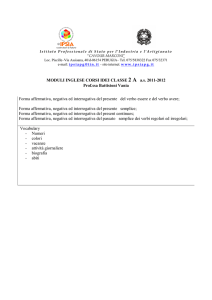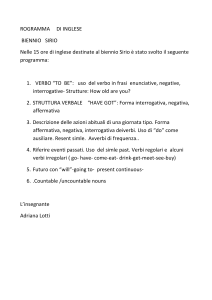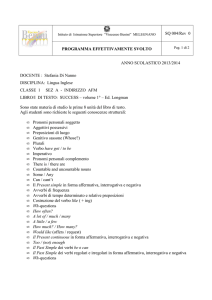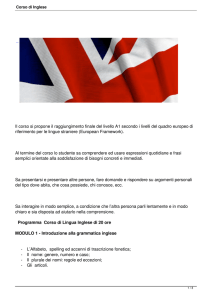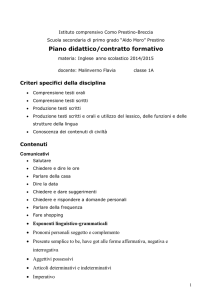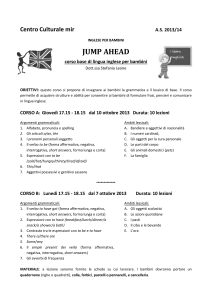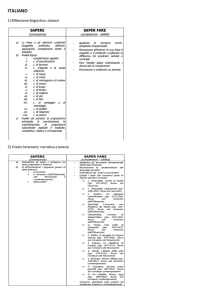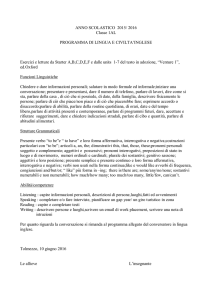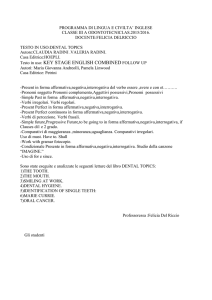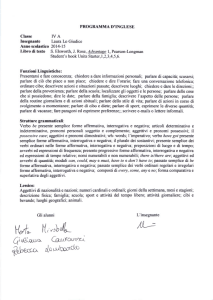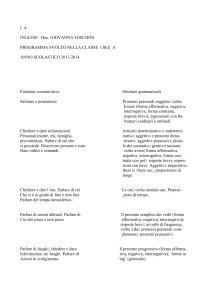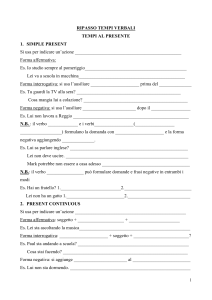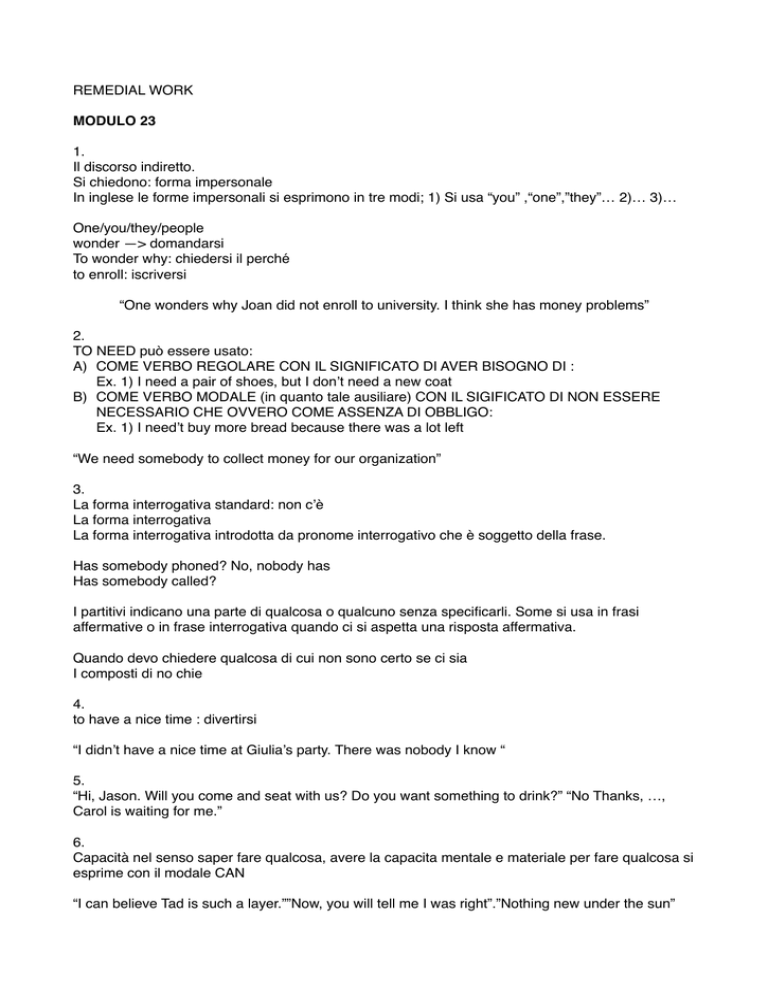
REMEDIAL WORK
MODULO 23
1.
Il discorso indiretto.
Si chiedono: forma impersonale
In inglese le forme impersonali si esprimono in tre modi; 1) Si usa “you” ,“one”,”they”… 2)… 3)…
One/you/they/people
wonder —> domandarsi
To wonder why: chiedersi il perché
to enroll: iscriversi
“One wonders why Joan did not enroll to university. I think she has money problems”
2.
TO NEED può essere usato:
A) COME VERBO REGOLARE CON IL SIGNIFICATO DI AVER BISOGNO DI : Ex. 1) I need a pair of shoes, but I don’t need a new coat
B) COME VERBO MODALE (in quanto tale ausiliare) CON IL SIGIFICATO DI NON ESSERE
NECESSARIO CHE OVVERO COME ASSENZA DI OBBLIGO:
Ex. 1) I need’t buy more bread because there was a lot left
“We need somebody to collect money for our organization”
3.
La forma interrogativa standard: non c’è
La forma interrogativa
La forma interrogativa introdotta da pronome interrogativo che è soggetto della frase.
Has somebody phoned? No, nobody has Has somebody called?
I partitivi indicano una parte di qualcosa o qualcuno senza specificarli. Some si usa in frasi
affermative o in frase interrogativa quando ci si aspetta una risposta affermativa.
Quando devo chiedere qualcosa di cui non sono certo se ci sia
I composti di no chie
4.
to have a nice time : divertirsi
“I didn’t have a nice time at Giulia’s party. There was nobody I know “
5.
“Hi, Jason. Will you come and seat with us? Do you want something to drink?” “No Thanks, …,
Carol is waiting for me.”
6.
Capacità nel senso saper fare qualcosa, avere la capacita mentale e materiale per fare qualcosa si
esprime con il modale CAN
“I can believe Tad is such a layer.””Now, you will tell me I was right”.”Nothing new under the sun”
to be right: avere ragione
7.
“I can not find my glasses anywhere”. “Will you help me to look for them, please?” “Why do you
always leave them anywhere?”
8.
“Why are you so late?”. “You can not image how many people were at the post office.”
9.
What a pity you didn’t come at the concert. The pianist was really good.
congiuntivo passato: si usa sempre il simple past tranne per la forma to be perchè si usa were.
essere bravo a fare qualcosa: to be good at, to be skilled
10.
esclamazione
To be aggressive: essere aggressivo
How aggressive you are today! Yes, I am very tense. I have just quarreled
to quarrel: fare baruffa —> verbi bisillabi che finiscono con consonante
11.
My parents wedding anniversary is next week. It is a such important occasion …
12.
How big this park is! Yes, it is a such big park that one can easily get lost.
1.
le question
f. affermativa —> question tag interrogativa negativa
q.t. interrogativa negative è sempre contratta.
le risposte breve se sono affermative si usa la forma completa, se è neg la risposte deve essere
contratta.
you don’t … a secret do you? No, don’t worry
3.
Are you already going? Yes, we are.
4.
It is a nice pullover. But it is so expensive. I could never buy
condizionale presente —> in inglese. Va coniugato con la forma affermativa con never
5.
Mum, Can I watch the cartoons? I would not like you to watch so much tv.
could, may per richieste formali
can per richieste informali
per i tempi mancanti devo usare “to be allowed to”
vorrei che tu guardassi meno tv —> costruzione passiva del verbo volere ->
6.
Mary is always alone. I would like to have more friends.
verbi di percezione sono verbi di non azione, quindi non accettano forme progressive quindi si usa
sempre il simple present
7.
Why don’t you ever tell me the truth? I would like
purse/wallet
What would you do, if you found a wallet along the street? I would bring at lost property office
to take portare qualcosa lontano da qualcuno
to bring portare avvicinando qualcosa a qualcuno
8.
Why are you so late? I got up late and I missed the bus. If you got up earlier, I would be on time
9.
10.
11.
What shell we do tonight? Couldn’t we go to the disco?
12.
The weather is awful. But tomorrow it may better
to many davanti ai nomi non contabili, to much davanti a nomi non contabili
That’s right. I
I WOULD HAVE LIKE TO remain at home
why didn’t you came to the party WITH US? I would have liked to be with you but
DOVE —> CON CHI —> QUANDO

